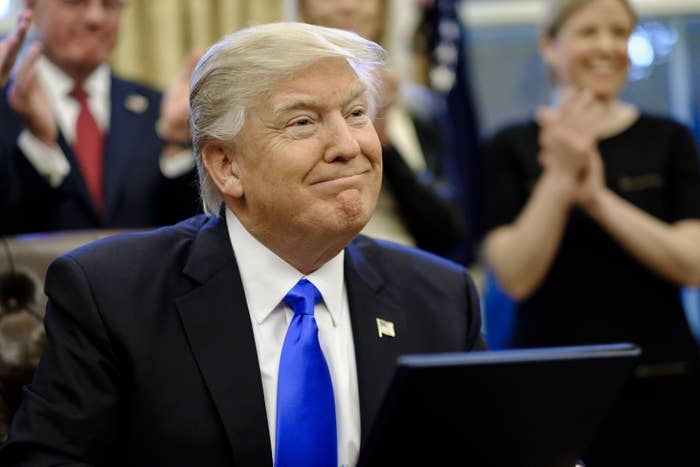
MPs could ask Facebook to attach "fake news" warnings to stories shared by British users, as part of an investigation into how false information is spread by social networks.
The investigation poses a threat to the social network, which has argued that it is primarily a tech platform with limited responsibility for the accuracy of news stories shared on its site, as opposed to a traditional media company responsible for verifying what it publishes.
But with millions of Britons having their news consumption shaped by Facebook's algorithm, politicians are increasingly keen to investigate, prompting the House of Commons' culture, media, and sport select committee to launch an investigation.
Damian Collins, the chairman of the committee, told BuzzFeed News that Facebook's News Feed would be a key focus of his committee's inquiry and said it could “absolutely” be the case that they could ask Facebook to attach warnings to potentially inaccurate news stories in the UK.
A similar system has recently been introduced for US and German Facebook users, with fact-check warnings appearing alongside disputed stories.
Collins said his interest in the topic had been piqued by a BuzzFeed News investigation into how Macedonian teenagers were making tens of thousands of dollars by writing completely fake viral news stories about Donald Trump during the US presidential election.
"When social media became people’s primary source for news, it meant that fake news written by someone in Macedonia would be regarded in the same way as something from the New York Times," the MP said. "Has the technology facilitated the spread of fake news? Can you have verification tags on sources to help?"
He added: "We will be looking at the response to fake news in France and Germany, and the work Facebook is doing to change its algorithm," suggesting fake stories about Trump "may have had a significant impact on democratic processes".
Many governments are increasingly fearful of the effect that disinformation can have on democracy, with the head of the British intelligence services warning about the threat posed by fake news and the German government concerned ahead of elections in the country later this year.
However, an analysis of British political articles by BuzzFeed News suggests that completely fake news has yet to take hold in the UK, with most readers preferring disputed stories by traditional outlets that distort or exaggerate facts rather than creating outright lies.
As a result, Collins said, his committee was not just interested in wholly fake stories, but in seemingly legitimate stories that had fake aspects to them.
"Consumers should also be given new tools to help them assess the origin and likely veracity of news stories they read online," he said, suggesting it could be viable to use computer-generated algorithms to distinguish fake news from genuine reporting.
The House of Commons inquiry will cover all aspects of fake news on all social networks and the wider internet, including advertising systems such as the role played by Google AdWords, which has moved to stop the sale of advertising on fake news websites.
However, Collins' comments suggest it is Facebook that will be the focus of attention thanks to its unparalleled scale and success.
Facebook insists it has recently made moves to address the perceived problem in recent weeks and has appointed extra staff to its news team.
"We take our responsibility as a platform for content extremely seriously, and that includes our responsibility to tackle misinformation on Facebook," said a spokesperson for the company. "We want people to feel confident that the content they see on Facebook is meaningful and authentic, and recently announced a series of measures designed to address misinformation on our platform. We understand there is still more work to do and we are committed to working with others from across different industries to do so."
Among other things, the politicians will consider whether the "perceived trend for the public to distrust traditional sources of news, such as newspapers and broadcasters" is prompting people to turn to social media for news "despite the fact that the source of the stories is often unclear and it is not known whether the reports are factually accurate".
On a more deep and philosophical level MPs will grapple with the issue of stories where "biased but legitimate commentary shade into propaganda and lies" and ask whether, if all views and interpretations of events are considered equally valid, there is a risk that "objectivity and balance lose all value".

